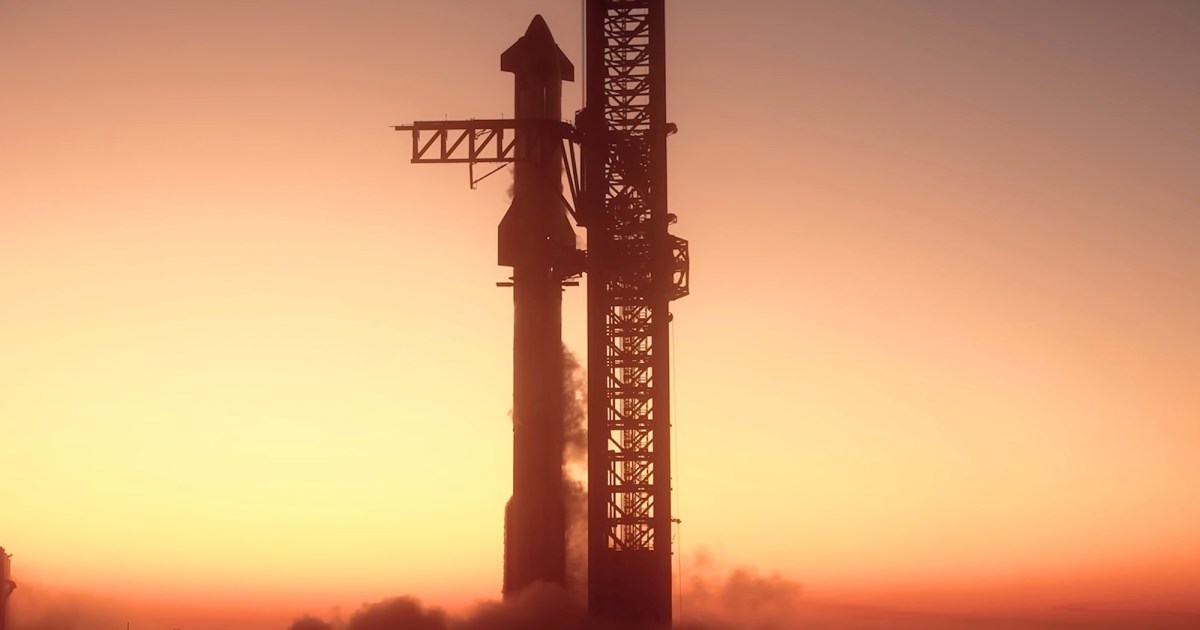SpaceX has moved a big step closer to the seventh test flight of its enormous Starship rocket after receiving clearance from the Federal Aviation Administration (FAA) this week.
The FAA’s award of a launch license follows recent testing by SpaceX of the engines on the Starship’s first-stage Super Heavy booster, and also on the upper-stage Starship spacecraft.
The next step will be to place the spacecraft atop the Super Heavy in preparation for the launch from SpaceX’s Starbase site in Boca Chica, Texas.
Please enable Javascript to view this content
The Elon Musk-led spaceflight company has yet to officially announce a target launch date for the Starship’s seventh test flight, though recent reports, citing information in a NASA document, pointed to January 11.
But now that SpaceX has secured the launch license for flight number seven, there’s a chance that it could send the 120-meter-tall rocket skyward earlier than expected.
The seventh flight will use the first Block 2 Starship spacecraft, which features updated flap designs and is capable of carrying more propellant. The mission profile is similar to previous tests, but includes improvements based on lessons learned from the previous test flights. As with the Starship’s fourth, fifth, and sixth test flights, the spacecraft is expected to perform a controlled landing in the Indian Ocean about an hour after launch.
We should also see another attempt at catching the returning Super Heavy booster using a pair of giant mechanical arms on the launch tower. SpaceX achieved the spectacular feat at its first try on the Starship’s fifth test in October, but failed to nail it during the following test last month.
Once fully tested and certified, NASA and SpaceX want to use the Starship to transport crew and cargo to the moon, Mars, and possibly to even more distant places in our solar system.
The Starship’s first big mission is expected to use a modified version of the spacecraft to land the first NASA astronauts on the moon since 1972. But the mission, Artemis III, has suffered a number of delays, and is currently targeted for 2027.

